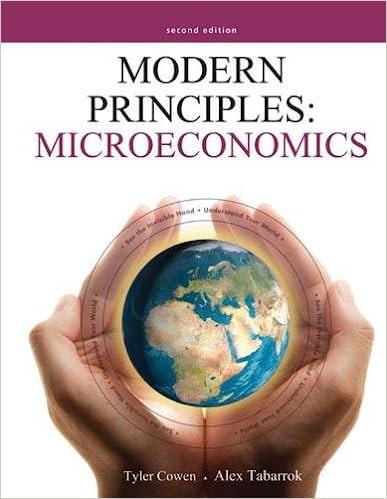1.The experience that was had in this common course and condition, tried sundry years and that amongst...
Question:
1.The experience that was had in this common course and condition, tried sundry years and that amongst godly and sober men, may well evince the vanity of that conceit ofPlato's and other ancients applauded by some of later times; that the taking away of property and bringing in community into a commonwealth would make them happy and flourishing; as if they were wiser than God. For this community
(so far as it was) was found to breed much confusion and discontent and retard much employment that would have been to their benefit and comfort. For the young men, that were most able and fit for labour and service, did repine that they should spend their time and strength to work for other men's wives and children without any recompense. The strong, or man of parts, had no more in division of victuals and clothes than he that was weak and not able to do a quarter the other could; this was thought injustice. The aged and graver men to be ranked and equalized in labours and victuals, clothes, etc., with the meaner and younger sort, thought it some indignity and disrespect unto them. And for men'
wives to be commanded to do service for other men, as dressing their meat, washing their clothes, etc., they deemed it a kind of slavery, neither could many husbands well brook it. Upon the point all being to have alike, and all to do alike, they thought themselves in the like condition, and one as good as another; and so, if it did not cut off those relations that God hath set amongst men, yet it did at least much diminish and take off the mutual respects that should be preserved amongst them.
And would have been worse if they had been men of another condition. Let none object this is men's corruption, and nothing to the course itself. I answer, seeing all men have this corruption in them, God in His wisdom saw another course fitter for them.
(Source : Bradford, William. Of Plymouth Plantation1 162D-1647. Edited by Samuel Eliot Morison. New York: Modern Library, 196 7.)
a.
Imagine yourself a pilgrim under the communal (commons) system. If you worked hard all day in the fields, would that increase your share of the food by a lot or a little? Describe the incentive to work under the communal system.
b. Under this system, what type of good was the pilgrim's harvest?
c. According to Bradford, the communal system "retard[ ed] much employment that would have been to their benefit and comfort." Why would the commu nal system reduce something that would have been to the pilgrim's benefit? How would you describe this using the tools of economics?
d. According to Bradford, what happened to the amount of food produced and the amount of labor after the communal ystem was abolished and workers got to keep a larger share of what they produced?
e. Read Bradford's statement carefully. What other effects did the communal system cre ate? (Note that economists typically ignore these kinds of effects.)
Step by Step Answer:

Modern Principles Microeconomics
ISBN: 9781429239998
2nd Edition
Authors: Tyler Cowen, Alex Tabarrok






